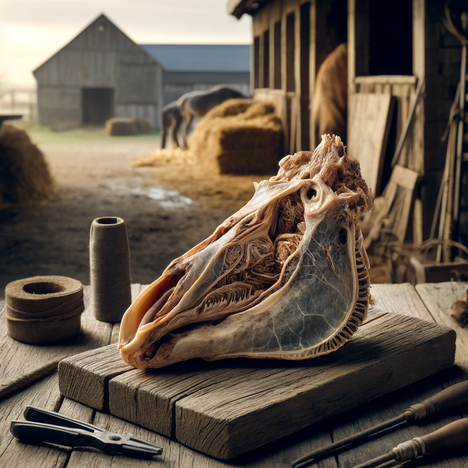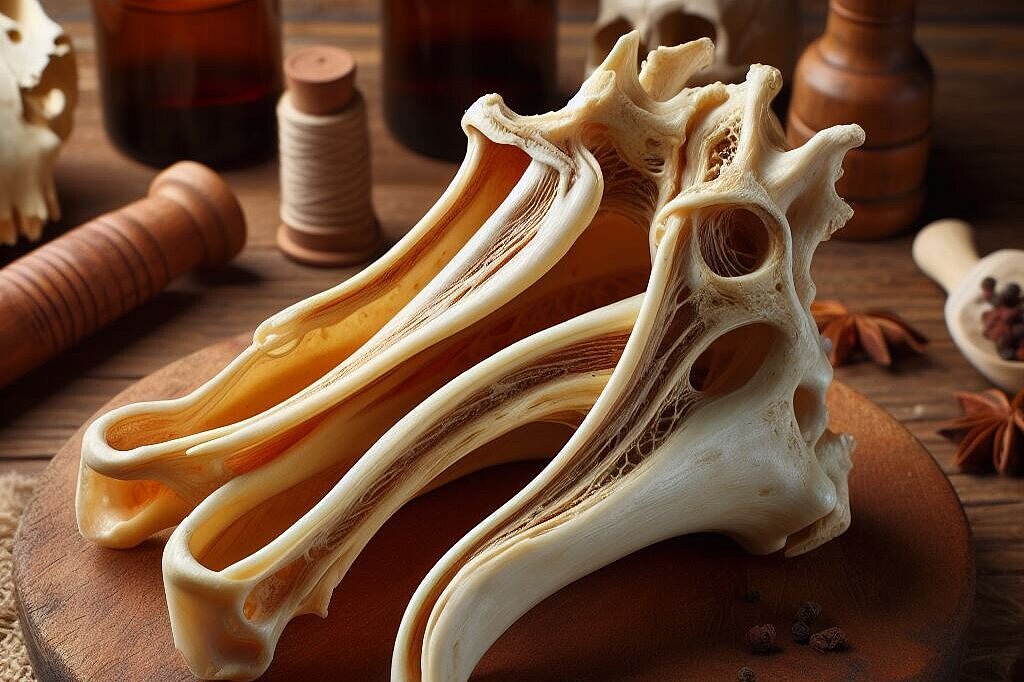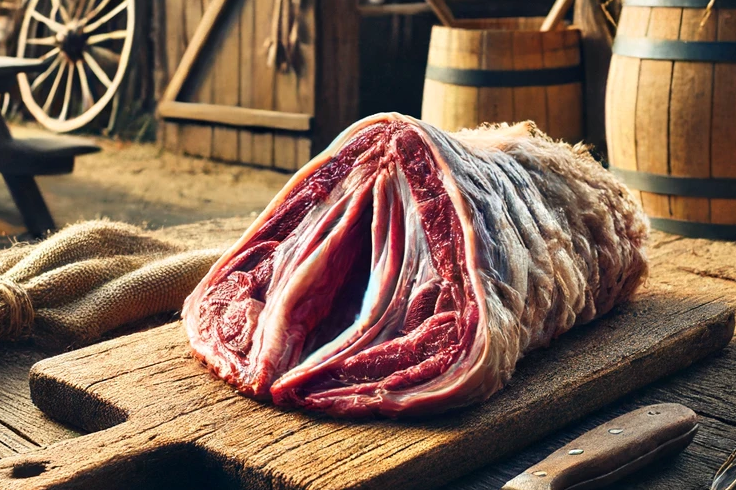Horse throats

In the diverse world of dog nutrition, we are constantly on the lookout for healthy, nutritious and interesting food options for our four-legged companions. In the process, we occasionally come across unusual products that are not an everyday part of a dog's diet. One of these products is horse throats. But what exactly is behind this unusual snack and what advantages and disadvantages does it have for dogs? This article takes a closer look at horse lumps to give you a sound basis for your decision.
What are horse larynxes?
Horse larynxes, also known as the horse's larynx, are parts of the respiratory system of horses. They are a by-product of horse meat processing and can be processed for dogs in a similar way to other animal by-products. Typically, they are dried to extend their shelf life and make them more attractive as a chew for dogs.
Benefits of horse throats for dogs
High nutritional value
Horse throats are rich in high-quality proteins and also contain important fats that are essential for a dog's healthy diet. They provide a good source of essential amino acids that support muscle health and recovery.
Dental health
Chewing on dried horse throats can contribute to natural teeth cleaning by helping to reduce plaque and tartar. The gums are massaged by the mechanical friction, which leads to better blood circulation.
Occupation and chewing fun
For many dogs, chewing provides a natural and satisfying activity. Horse throats are particularly interesting due to their structure and texture and can keep dogs occupied for long periods of time.
Hypoallergenic
Like other horse meat, horse throats are considered hypoallergenic and can be a good alternative for dogs with food allergies or intolerances.
Disadvantages and risks
Risk of injury
Although there are many benefits to chewing on horse throats, there is always a risk of injury to the mouth or damage to teeth, especially if the dog is prone to aggressive chewing behavior.
Risk of swallowing
Larger pieces or splinters of dried horse larynx could be swallowed and lead to internal blockages or injuries. Careful supervision during chewing is therefore essential.
Quality and origin
The quality and origin of horse larynxes are crucial to their safety and nutritional value. Products of dubious origin may be contaminated with harmful substances or have a poor nutritional composition.
Horse throats can be an interesting and nutritious addition to your dog's diet, especially for dogs with special dietary needs or chewing preferences. However, as with any chew, care should be taken to avoid injury and health risks. It is important to choose products of high quality and known origin and to supervise your dog when chewing.
If you notice any signs of hypersensitivity or poisoning in your dog, you should see your vet immediately. We are not a substitute for a vet, but we try to be as accurate as possible. Every dog reacts differently and we recommend you get a second opinion or consult your vet if in doubt.
Stay healthy and take good care of your four-legged friend!😊
Similar to Horse throats
What are beef larynxes? Bovine larynxes are a part of the offal of cattle that is not normally used for human consumption. They consist of the larynx, trachea, hyoid bone and the surrounding muscle...
Water buffalo larynxes are dried larynxes from water buffalo that are marketed as chews for dogs. They come from the same species of animals from which buffalo milk, meat and leather are obtained....
Sheep larynxes, often simply considered part of the offal, are actually more than just a by-product of the meat industry. They are the upper parts of a sheep's windpipe, including the adjacent...
Goat larynxes are exactly what the name suggests: the larynxes of goats, which can be used as part of a raw meat diet or as a dried snack for dogs. They belong to the category of animal by-products...


